 Petzlover
Petzlover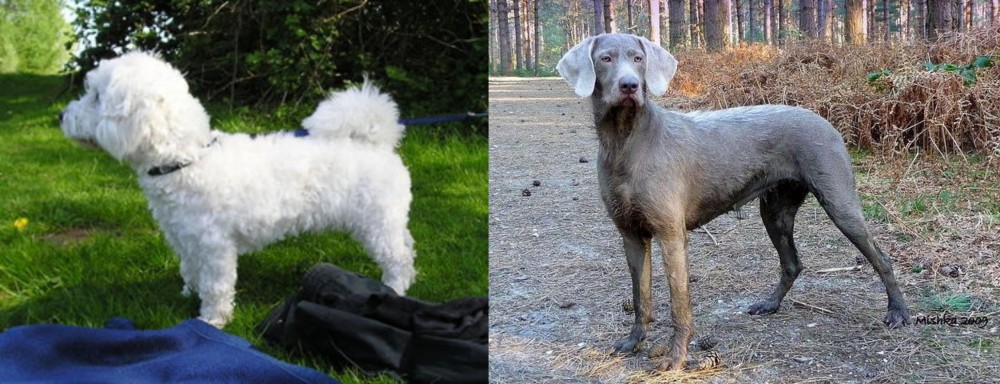 Franzuskaya Bolonka is originated from France but Slovensky Hrubosrsty Stavac is originated from Slovakia. Franzuskaya Bolonka may grow 41 cm / 16 inches shorter than Slovensky Hrubosrsty Stavac. Franzuskaya Bolonka may weigh 30 kg / 66 pounds lesser than Slovensky Hrubosrsty Stavac. Both Franzuskaya Bolonka and Slovensky Hrubosrsty Stavac has almost same life span. Franzuskaya Bolonka may have less litter size than Slovensky Hrubosrsty Stavac. Both Franzuskaya Bolonka and Slovensky Hrubosrsty Stavac requires Low Maintenance.
Franzuskaya Bolonka is originated from France but Slovensky Hrubosrsty Stavac is originated from Slovakia. Franzuskaya Bolonka may grow 41 cm / 16 inches shorter than Slovensky Hrubosrsty Stavac. Franzuskaya Bolonka may weigh 30 kg / 66 pounds lesser than Slovensky Hrubosrsty Stavac. Both Franzuskaya Bolonka and Slovensky Hrubosrsty Stavac has almost same life span. Franzuskaya Bolonka may have less litter size than Slovensky Hrubosrsty Stavac. Both Franzuskaya Bolonka and Slovensky Hrubosrsty Stavac requires Low Maintenance.
 The Franzuskaya Bolonka in France is known as the Tsvetnaya Bolonka in Russia and in Germany as the Bolonka Zwetna. All of these translate to Colored Bolognese. It is known as the “Pride of Russia” and was rediscovered by the Russians following the thaw of the Cold War. It is also sometimes translated as a colored lapdog.
The Franzuskaya Bolonka in France is known as the Tsvetnaya Bolonka in Russia and in Germany as the Bolonka Zwetna. All of these translate to Colored Bolognese. It is known as the “Pride of Russia” and was rediscovered by the Russians following the thaw of the Cold War. It is also sometimes translated as a colored lapdog.
The Bolonka is a rare breed in the toy category with ancestors in the Bichon Friese line. This little dog looks very much like the national dog of Cuba – the Havanese. In addition to the Bichon other small dogs in this ancestral line include the Shih Tzu, Toy Poodle, and Pekingese as well as the French, Italian and German Bolonka. They are often confused with the Bolognese as both breeds appear in various countries and have many similarities.
In all countries the common name for this dog is the Bolonka. They have a variety of names and nick names depending on the country. In addition to being the “Pride of Russia” he is called a Russian colored Bichon, Czechs call it the Bareyny Bolonsky, the Germans since 1980 have called it the Bolonka Zwetna but the Nordic Kennel Union does not recognize the Zwenta only the Russian Twetnaya.
The French version is seen to be the original with its ancestry dating back to the 18th century when Russian nobles were presented with a Bolonka by Louis XIV of France, and others migrated with the army of Napoleon to Russia. They were still known as the Bolonka of France. Small dogs were not popular in Russia due to the need for dogs that could work on farms and/or hunt. Particularly during the Soviet years, they were considered unnecessary. No Bolonkas were imported to Russia during the Soviet regime, so only localized breeding took place. The goal of breeders in the Soviet Union was to develop a toy dog, lap sized with an apartment living temperament.
During the cold war the Russians sent a pair of breeding Franzuskaya Bolonka to East Germany and they began to develop the breed there as well. At the same time the colored versions of the Bolonka were being bred. The Franzuskaya Bolonka is recognized by the Verband Dur Das Deutsche Hundewesen (VDF) while the other colored breeds are not. The white Bolonka is not recognized by the Federation Cynoloqique Internationale as a breed separate from the Bolognese but as simply another version. Individual clubs throughout the world recognized one or more versions of the Bolonka. They are thought to be the rarest within the Bichon family.
Today’s Bolonka is owed by Prince William and Princess Kate, giving the breed more publicity than it has had in many years.
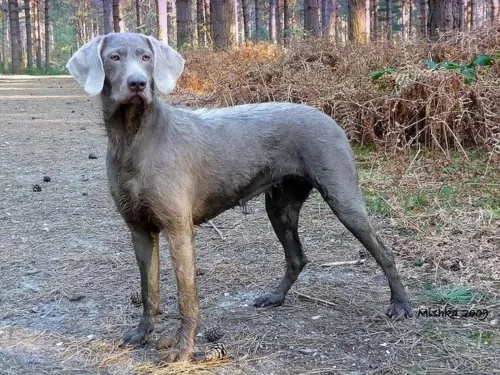 Breeding of the Slovak Hruborsty Stavac, fondly referred to as the SHS began around the 1940s.
Breeding of the Slovak Hruborsty Stavac, fondly referred to as the SHS began around the 1940s.
There were some dog lovers who were interested in crossing the coarse haired dogs of Slovakia with the German Wirehaired, the Czech blower and the Weimaraner. The outcome was a rough-haired kind of Weimaraner-looking dog.
While hunters and hunting were quite common in Slovakia, the breed became rather rare with the wars when hunting became less, but the dog was reconstructed by breeders, but is still rare outside Slovakia.
 The Franzuskaya Bolonka is neither heavy boned nor fine boned. They are a toy breed with a moderate bone structure. The ears are neither long nor short and they have tails that touch the back at the tip. Like others in the Bichon family the Franzuskaya Bolonka does not shed. He is a sturdy little dog and the male has a distinct beard and moustache that the females of the breed do not. They have long coats that are wavy and curly. The Franzuskaya Bolonka is of course only white. The Russian version might be brown, red, black, wolf-gray, gray and of course white.
The Franzuskaya Bolonka is neither heavy boned nor fine boned. They are a toy breed with a moderate bone structure. The ears are neither long nor short and they have tails that touch the back at the tip. Like others in the Bichon family the Franzuskaya Bolonka does not shed. He is a sturdy little dog and the male has a distinct beard and moustache that the females of the breed do not. They have long coats that are wavy and curly. The Franzuskaya Bolonka is of course only white. The Russian version might be brown, red, black, wolf-gray, gray and of course white.
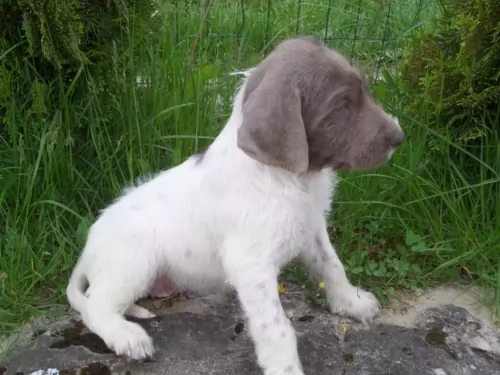 The dog is fairly large, standing at between 62 and 68cm in height and weighs 25 - 35kg. The coat is fairly coarse and dense and is a grey/silver shade with a touch of brown.
The dog is fairly large, standing at between 62 and 68cm in height and weighs 25 - 35kg. The coat is fairly coarse and dense and is a grey/silver shade with a touch of brown.
There is quite a bit of hair around the face. The ears are medium length and floppy and the tail is mostly docked to half its length but can be left long as well. The tail is set high and carried vertically and can be well feathered. The eyes are almond-shaped, and the dog has an intelligent appearance to him.
The Slovensky Hruborsty Stavac is a sharp dog, making it easy to have him trained and socialized. He is such a friendly, social dog, getting on well with all family members and loving to get involved with the games of the children.
There is no aggression in this dog and when you provide him with the exercise that he craves, he is loyal, gentle and loving, getting on well with other dogs as well.
 The Bolonka is great with kids, just avoid too intense play.
The Bolonka is great with kids, just avoid too intense play.
The Bolonka is a playful, lap dog with a lot of love to offer
Good adaptability great in the city in apartments and great in the country as well
They are very smart and love to learn. Being firm but beyond firm is also kind.
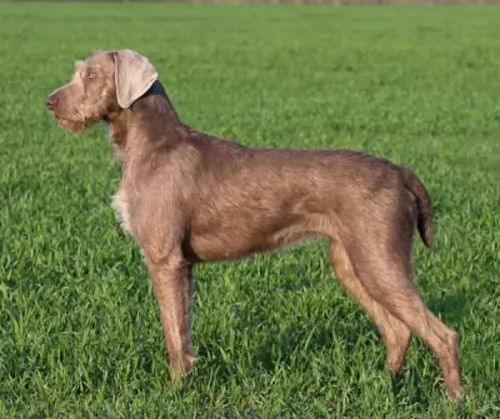 The Slovensky Hruborsty Stavac is such a bouncy, amicable pet, full of energy. He may appear to be confident and full of the joys but he secretly can’t stand it when his human family don’t include him in everything. He can actually suffer with separation anxiety.
The Slovensky Hruborsty Stavac is such a bouncy, amicable pet, full of energy. He may appear to be confident and full of the joys but he secretly can’t stand it when his human family don’t include him in everything. He can actually suffer with separation anxiety.
He is an athletic dog and will require lots of exercise – walks, hikes, ball games and running off his leash.
He is quiet but strong-willed and will respond well to a strong, firm, consistent, kind owner.
These dogs make the most awesome pets and you can either find one from a rescue group or find a puppy from a reputable breeder. Whatever you decide on, the Slovensky Hruborsty Stavac makes an extraordinary pet.
 Medical issues are not fully documented because of the rarity of the breed and the years of isolation in the Soviet Union.
Medical issues are not fully documented because of the rarity of the breed and the years of isolation in the Soviet Union.
 There are always some illnesses that your dog might get but which isn’t likely with your pet as these are healthy dogs.
There are always some illnesses that your dog might get but which isn’t likely with your pet as these are healthy dogs.
Dogs can die within a few hours if not treated with this ailment. Bloat is a condition where the stomach twists and fills with gas. The stomach is swollen and the gas can cause breathing problems because it puts pressure on the diaphragm. If you suspect that your dog has bloat, he should be rushed to the vet as soon as possible.
 Feed at least 3 meals a day. Feed one fourth of a cup daily split into three meals of a high quality puppy food.
Feed at least 3 meals a day. Feed one fourth of a cup daily split into three meals of a high quality puppy food.
Feed at least 2 meals per day. Feed one half of a cup daily split into two meals of a high quality dry food.
Fairly healthy breed due to isolation during cold war
The Franzuskaya Bolonka is developed as a lap dog but that does not mean he doesn’t need daily exercise. He loves to play but play gently and not for any length of time. They like to chase balls, play hide and seek and any tricks you want to teach them.
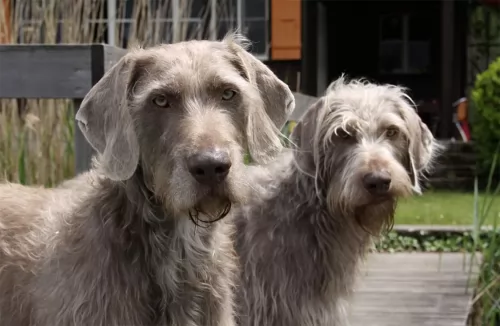 Before you bring your pet home, dog-proof your house. It won’t be fair to leave tempting, chewy things lying around and expect your pet to not be interested in them. Also, keep dangerous chemicals out of reach of your pet.
Before you bring your pet home, dog-proof your house. It won’t be fair to leave tempting, chewy things lying around and expect your pet to not be interested in them. Also, keep dangerous chemicals out of reach of your pet.
Prepare for your pet beforehand and have feeding- and water bowls ready as well as a nice basket or some other sleeping equipment available for him.
If you’re bringing an adult rescue dog home, try to feed him the same kind of food he was already eating, as too many changes can upset him. When he settles down, you can move over to other food. Keeping his food consistent can avoid digestive problems.
If you opt to feed him one of the commercially manufactured dog foods, make sure its the best quality as some of them are bad, filled with things such as colorants, preservatives and fillers. Try and give him some homemade food which you can add into the dry kibble twice a week. Boiled chicken, brown rice or pasta and spinach, sweet potatoes and carrots all boiled slowly together will delight your pet. Chop it all up and your pet will look so forward to this. Dogs thrive on simple, consistent meals like this. Provide water at all times.
The amount of exercise any dog needs is dependent on age, size and energy levels. Because the Slovensky Hruborsty Stavac is an energetic breed, he will need a good dose of exercise. If you have a puppy, avoid strenuous exercise as this can damage the soft, developing bones and joints. As well as walks and ball games, mental stimulation is also important for this dog. Consider buying some puzzle toys or feeders for your pet.
Keep up to date with all your dog’s immunizations and get your pet to the vet as soon as he is sick. There are some illnesses such as bloat which can claim your pet’s life in just a few hours if not attended to.